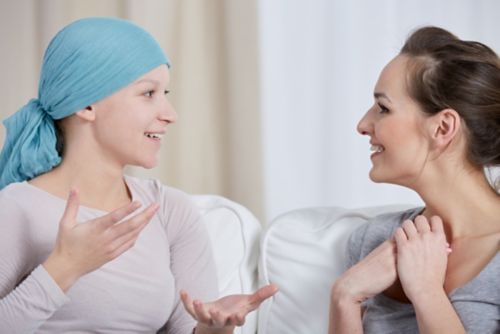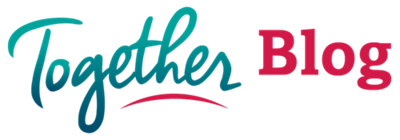Should I Share My Cancer Diagnosis?

There are many ways to share about cancer. Some people feel more comfortable talking with others, while some would rather post something online or write text messages.
You learn a lot after being diagnosed with cancer. Suddenly you become an expert in topics you never anticipated, such as becoming fluent in medical jargon or knowing the best routes to get through hospital hallways on a tight schedule.
Another thing you learn along the way is the art of disclosure. Disclosure means the act of making something known. It is important to feel prepared about when, how, and what to disclose about your cancer experience to others.
Keep in mind that you should never feel pressured to share your medical history. You have a right to privacy. Disclosure is a skill that you control. It is OK if you decide you want to share about cancer only with some people or to share only certain details.
If you decide to disclose your diagnosis, here are some tips to help guide you:
AYA Awareness Week
April 4-8 is Adolescent and Young Adult (AYA) Cancer Awareness Week.
Take time to prepare and practice what you will say.
- After a cancer diagnosis, you may need time to process the information alone. You should not feel rushed to share until you are ready. But telling others about your experience can help you feel supported during treatment.
- When you think of questions, know that your friends and family might have similar questions, too. Speak with your health care providers to gather the information you need to better understand your diagnosis and treatment. For example, child life specialists can help you make sense of cancer in more familiar terms. This way, you can feel ready to respond to questions that might come up.
Consider how you want to share information with others.
- There are many ways to share about cancer. Some people feel more comfortable talking with others, while some would rather post something online or write text messages. There is not a right or wrong way to talk about your cancer experiences.
- You can designate a close friend or family member to share a message on your behalf if it feels overwhelming to tell others about cancer, but you still want people to know what you are going through. This can be especially helpful if your diagnosis was unexpected, requiring you to leave school and home suddenly.
Become comfortable setting boundaries.
- You may be surprised by others’ reactions to your cancer. Even well-meaning people may not be able to relate to your experiences. As you share about your cancer with someone, let them know what kind of support you need in return. For instance, you can tell someone that you are just looking for them to listen or that you would like for them to reach out to you more.
- Once you open up about cancer, people may ask more questions, share unsolicited advice, or probe for more details. It is OK to let others know limits about what you are willing to discuss.
- Be open about your preferences. Just because you are ready to share about your cancer does not mean you have to be comfortable with your friends or family members sharing about your experience, too. If you do not want to see your community posting on social media about your most recent chemo round, tell them.
Sharing your cancer story can be empowering when done on your own terms. The impact of cancer on your identity and on your life is long lasting. Throughout treatment and into survivorship, your strategies for disclosure may change. Reach out to your health care team if you need support or resources to help you navigate disclosure at any time.





